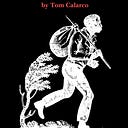Member-only story
Remembering Woodstock Fifty Years Later
Ya Know, It’s Something Worth Remembering
By Tom Calarco
Ya know, one afternoon many years ago I sat down at the counter of the Friendly Ice Cream Shop at the mall in Colonie, New York. It’s amazing how often people used that phrase “you know” back then. There were lots of oh wows and far outs, too, and if they called you crazy, well that was the ultimate compliment. For instance, we would add “crazy” in front of someone’s name that we liked. Even someone with a surname like Ellsworth would be called, Crazy Ellsworth, or Crazy Grigorovitch, or maybe you used their first name instead, like Crazy Charlie. But the king of phrases during that time was, ya know.
Anyway, it was 1969, we were fighting a war in Vietnam, and I was a wide-eyed kid wondering what life was all about. I was waiting to order when a girl sat down next to me. I can’t remember what she looked like, only that she was about my age. I remember being nervous, as I didn’t have much confidence with girls in those days. I hesitated to look at her as I ordered an extra thick chocolate milk shake. To my surprise, she spoke to me.
“Did you hear, it’s free now. Woodstock is free.”
I turned to face her.
“Do you know anyone who’s going?”
